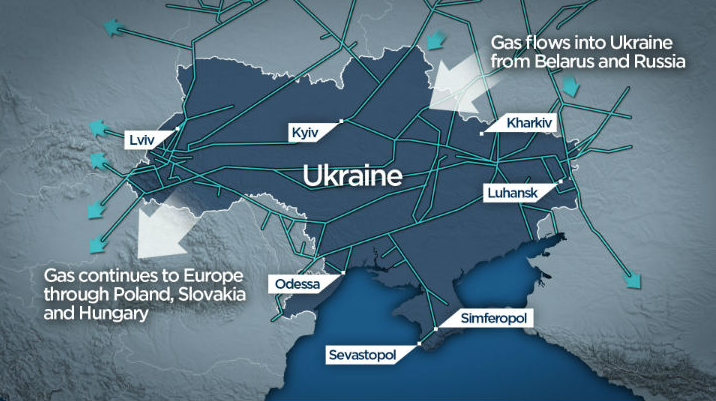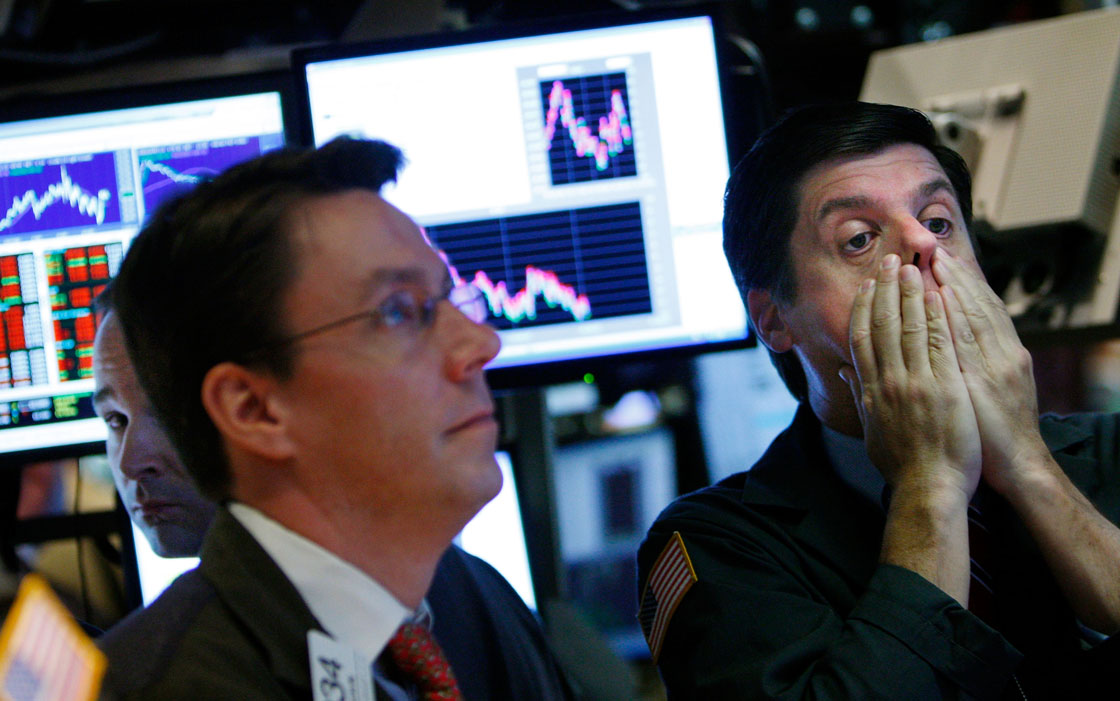Generally speaking, if Ukraine’s economy was taken offline tomorrow, there would be little in the way of disruption to the Canadian and global economy so long as Russia’s state-owned natural gas and oil pipelines running through the country kept funnelling energy to the bigger economies of the European Union.

Ukraine comprises only about 0.4 per cent of worldwide gross domestic product, compared to the 19 per cent contribution from the United States and 16 per cent from China, the two heavyweights.
Canada’s contribution is about 2 per cent, according to recent trade data, a percentage point behind Russia’s.
That said, in our interconnected global economy, some degree of pressure can be felt as far away from Kyiv as Vancouver as the conflict persists, and doubly so if the West is provoked into sanctions against Russia or worse.
Here’s three direct ways the conflict could impact your pocketbook:
Stock market fluctuations
On Monday, investors were rattled by the potential for a wider conflict and scrambled for the exit of international stock markets. In North America, the biggest stock index, the S&P 500, dropped nearly 1 per cent. The TSX slipped 50 points.
Everything from pension funds to RRSPs to your buddy’s portfolio of can’t-lose penny stocks get dinged by a sell-off as confidence that companies can operate in a stable environment erodes. Stock market sell-offs are reflexive responses when geo-political risk goes up and economic growth pauses.

Get weekly money news
But over time, markets outlast the risks and experts advise that during episodes of momentary panic – like the kind we saw Monday — to resist the urge to join the herd. On Tuesday, markets were already recovering.
There may well be more sharp downturns on the TSX or elsewhere before the conflict is resolved, but if you manage your own savings in investments like stocks, or have a financial planner who does, stay cool (though your planner is likely telling you that already).
Gas prices

Unlike managing your own savings and exposure to the stock market, energy prices are out of your control. And unfortunately, Russia is a major supplier of oil and natural gas to the rest of the world, predominantly markets in Western Europe.
“Russia’s gas reserves are large and how they allocate those reserves are important,” BMO economists said Tuesday.
Oil prices are climbing (up 2 per cent) on worries that gas exports to the EU – which counts on Russian pipelines through Ukraine for 15 per cent of its gas – could be interrupted. Russia has shown a penchant for using its state-owned pipelines for geo-political gain, turning off the taps in 2009 during a trade skirmish.
Russia is moving now to halt supplies destined for Ukraine itself. On Tuesday, Russia’s state-run gas behemoth OAO Gazprom said it cancelled a contract to sell Ukraine discounted natural gas beginning in April.
While states like Germany, France and even Ukraine have built up reserves to absorb temporary disruptions, pressure is being felt on global oil prices this week which will fan what we pay at the pump in the weeks ahead, experts say.
For Canadians, the impact on gas prices could be a double whammy. The loonie is weakening against the U.S. dollar as currency investors move into the “safe haven” USD during the conflict, pushing energy import costs up in the process (with imported gas priced in U.S. dollars).
Food prices
Admittedly, this last one is a distant third to the other two risks. That said, Ukraine is a major staples supplier to Europe and experts suggest that the present conflict could see prices rise in the months ahead if the harvest is disrupted and food exports dented.
“The political uncertainty in Ukraine and Russia is likely to lead to higher grain prices later this year,”Eddy Hargreaves, analyst at Canaccord Genuity said in a note Tuesday.
A nudge in food prices in Europe could ripple into Canadian stores if global grain prices feel upward pressure from the conflict, experts say.







Comments